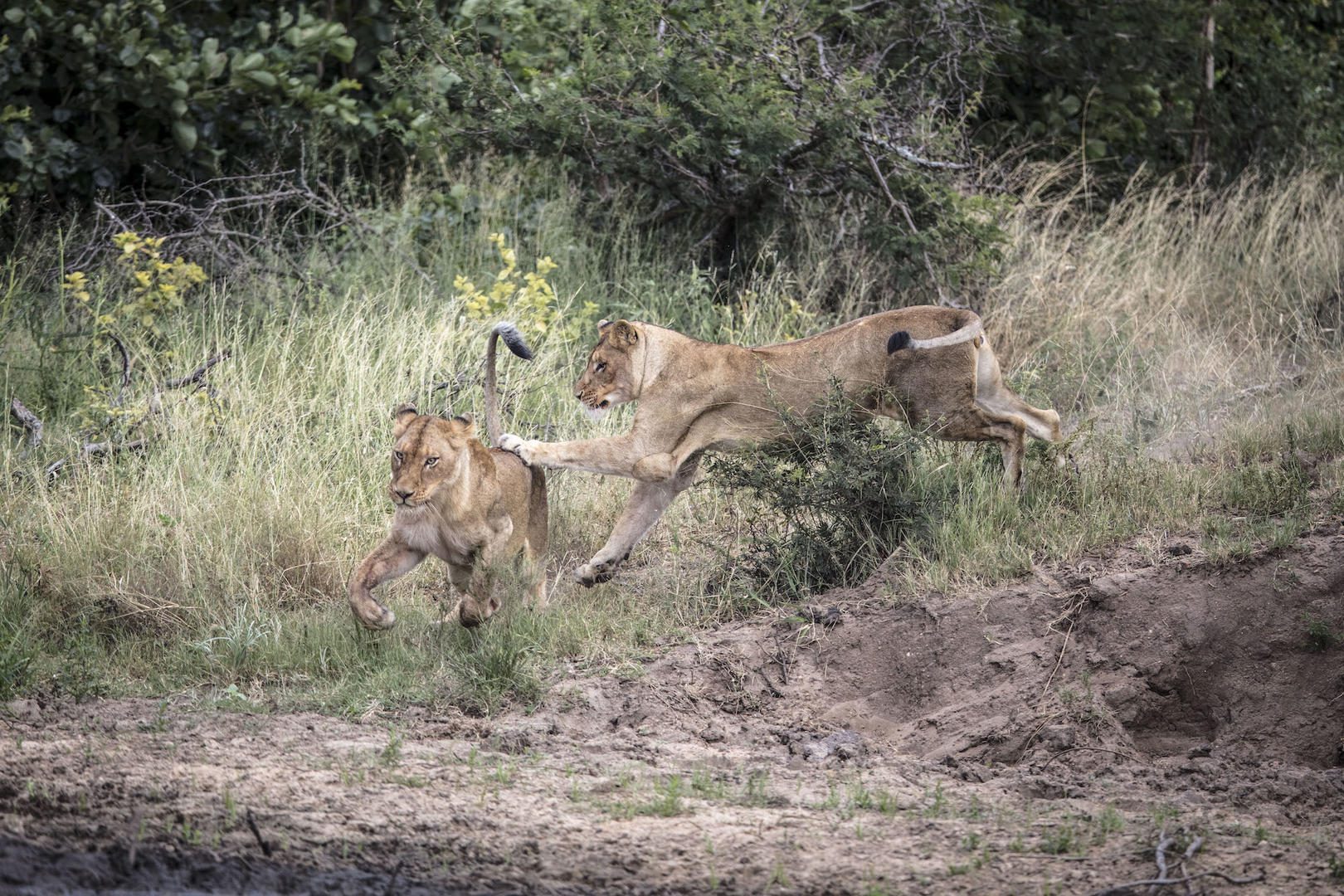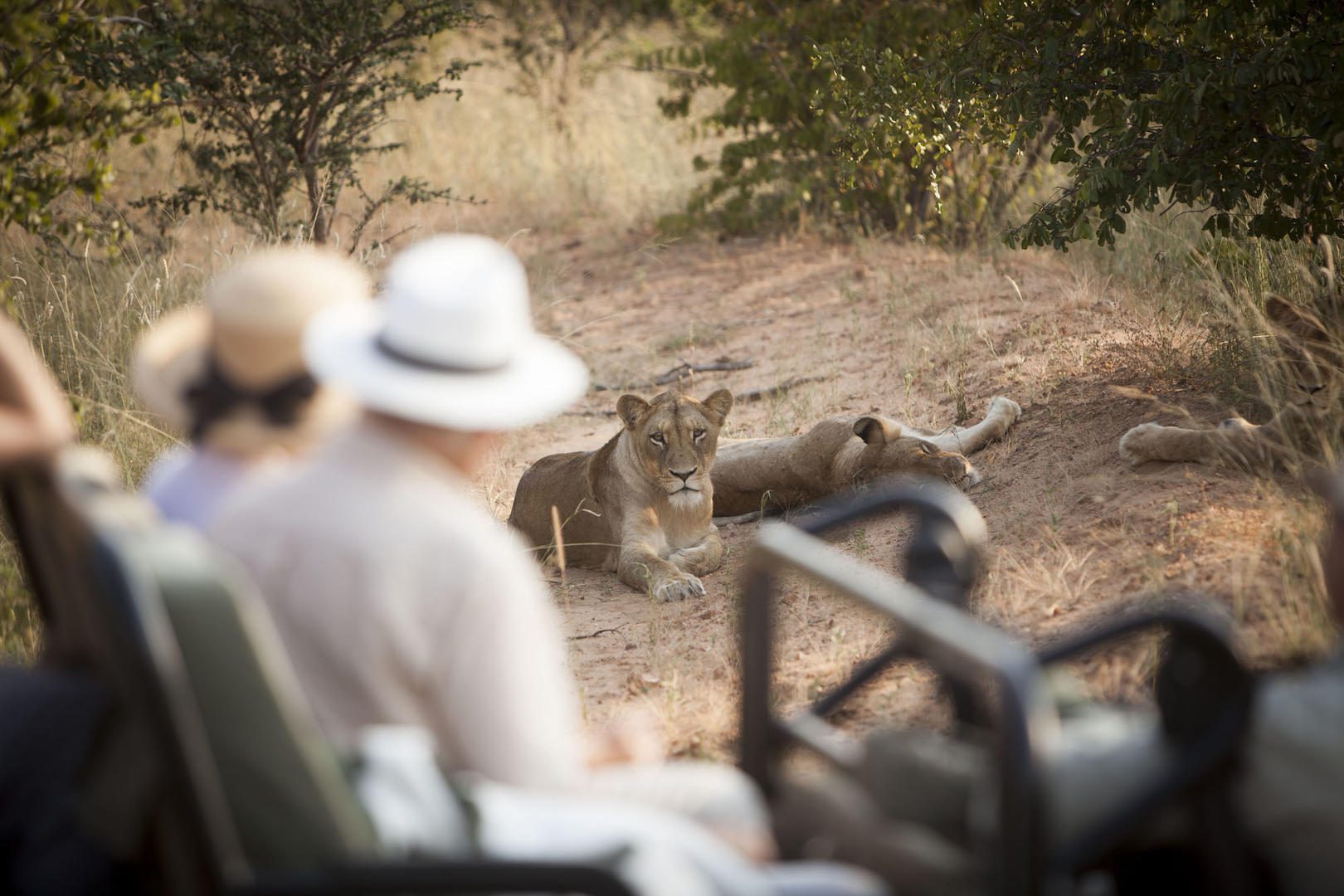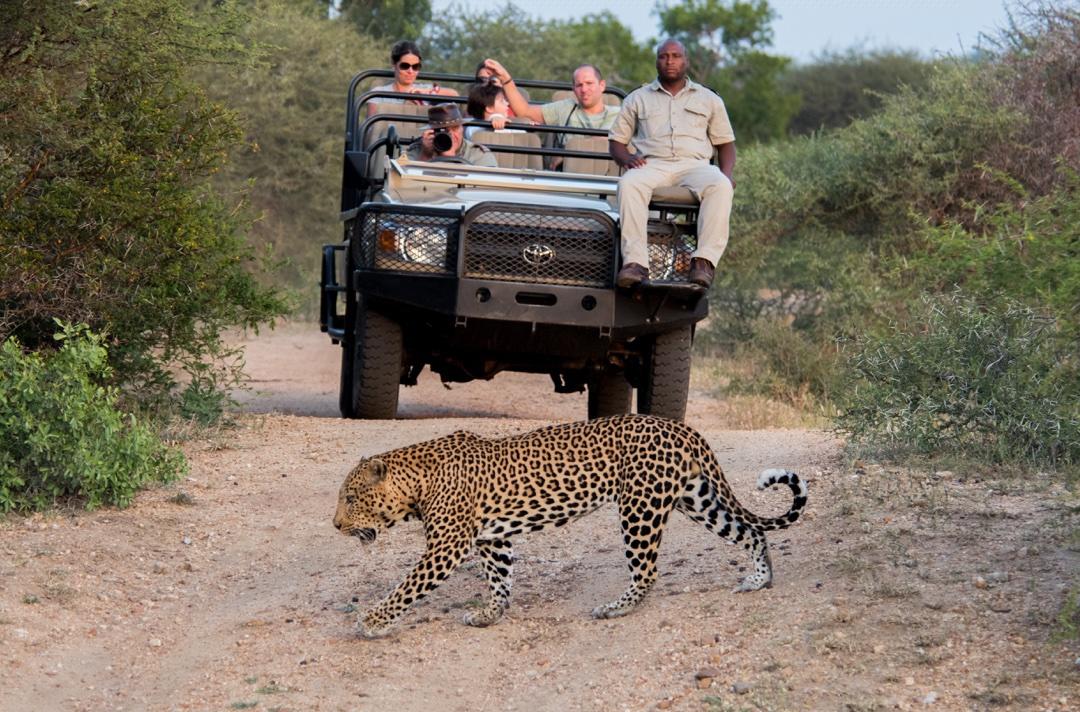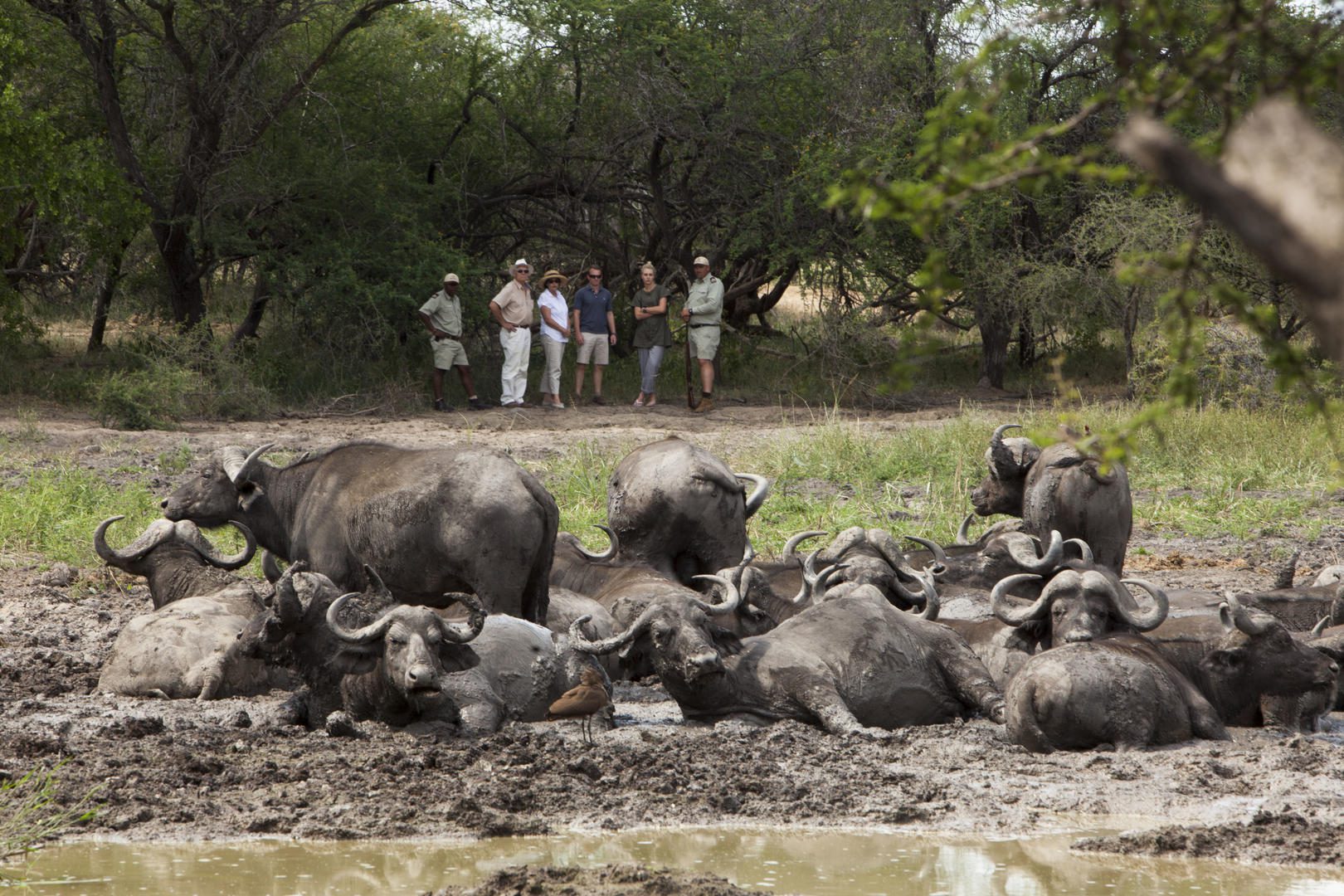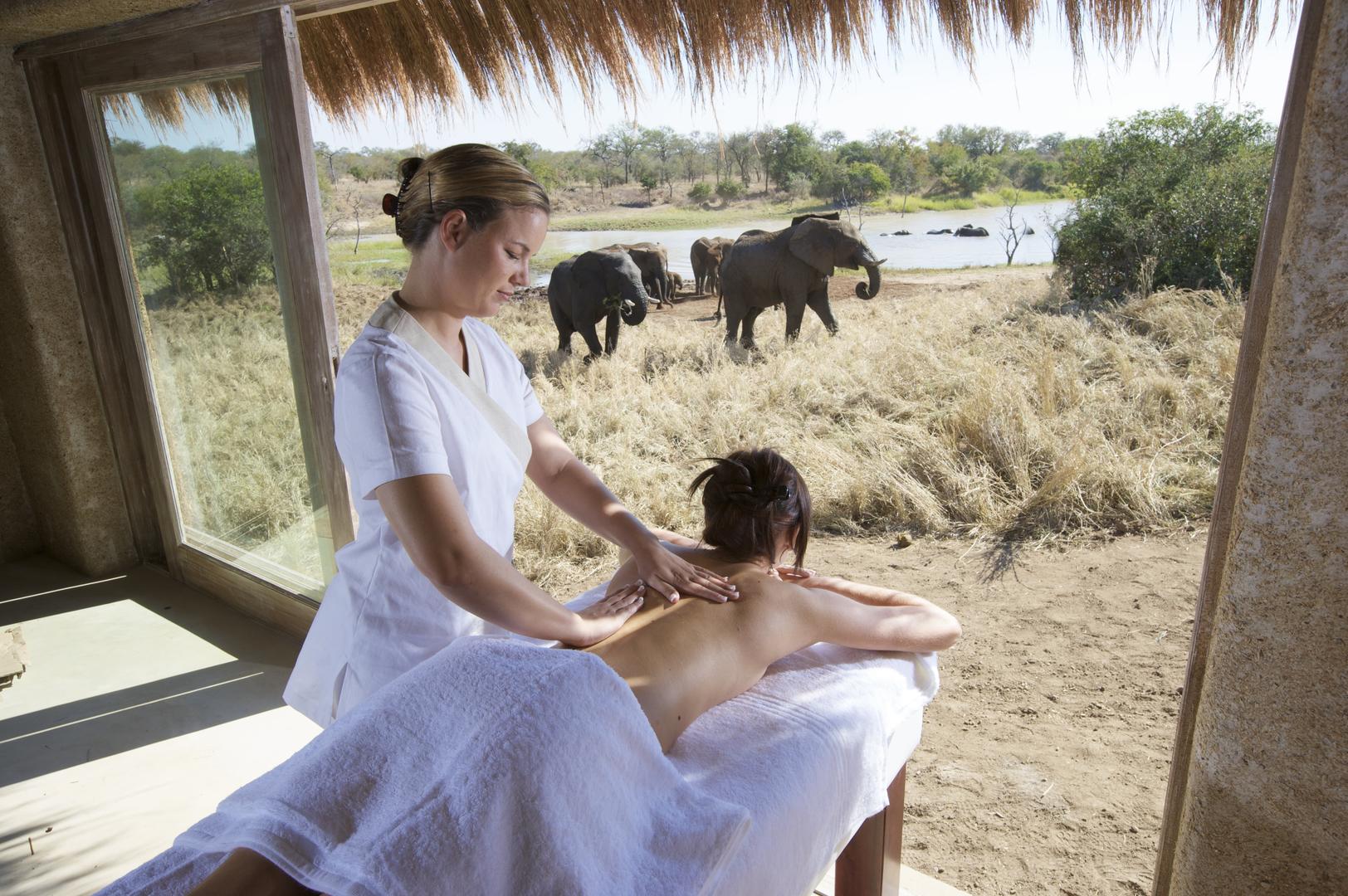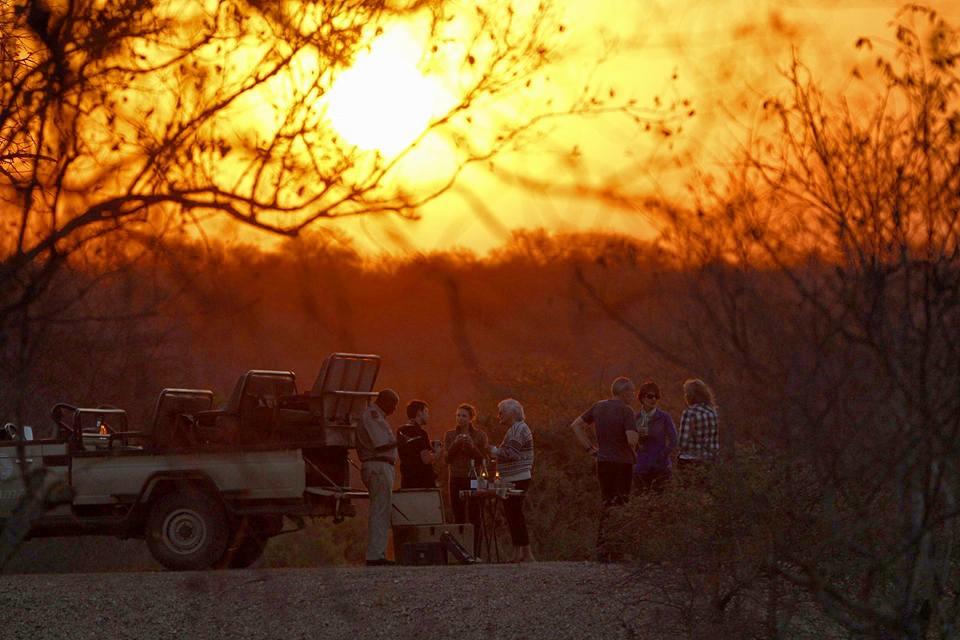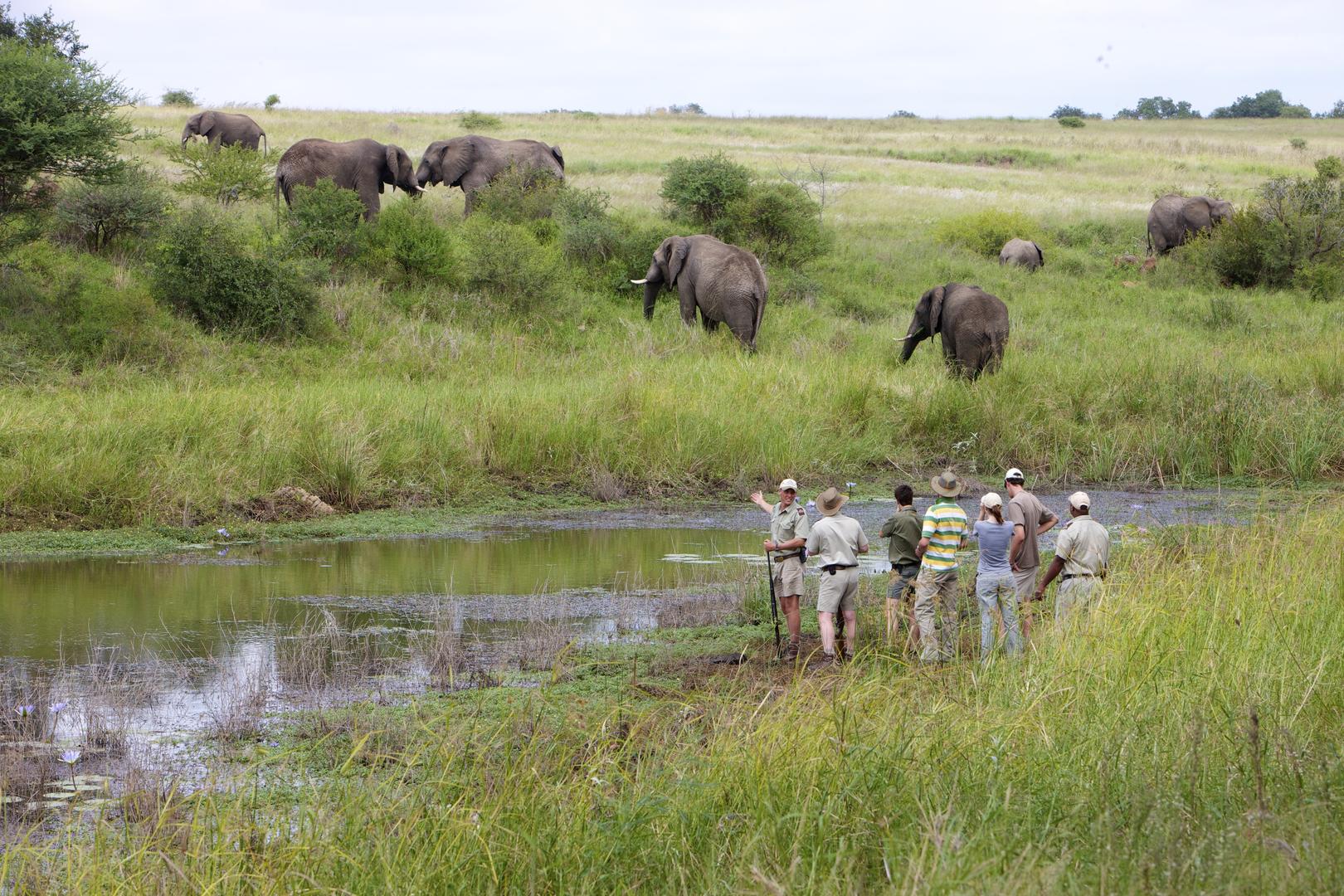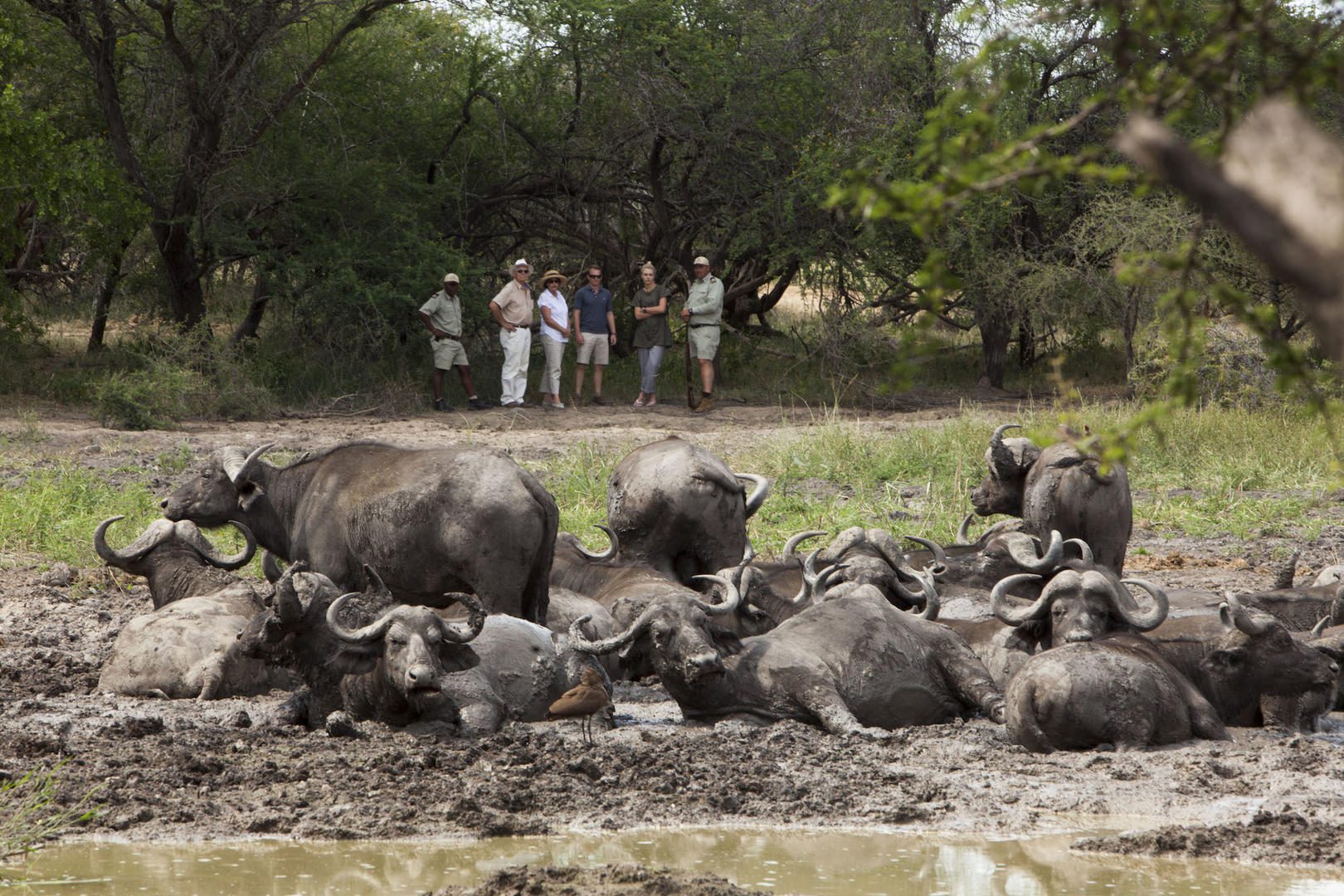Home » Sabi Sands Accommodation – Luxury Safari Lodges – Sabi Sands Game Reserve – Kruger National Park – South Africa » Lion Sands Game Reserve – Sabi Sands – Kruger National Park
Lion Sands Game Reserve - Sabi Sands Game Reserve
Lion Sands Game Reserve is the only private reserve to have a foot in both the Sabi Sands Game Reserve and Kruger National Park. The Sabi Sands Reserve is the oldest of South Africa’s private reserves, and the origin of wildlife tourism in Southern Africa. It is home to a vast natural animal population including The Big Five and countless other species (some of which are critically endangered).
Flanking the Kruger National Park, animals pass unhindered between the unfenced reserves. Known for its extraordinary leopard viewing, safari enthusiasts could not find a better place for close-contact animal sightings that many would insist are the best in the world.
The Sabi Sands Reserve (Sabi Sands Wildtuin) shares a 50km (31.25 miles) unfenced border with the Kruger National Park. This extraordinary and unique wilderness area comprises a collection of privately owned game reserves which combine to form a mammoth tract of pristine game land (65 000 hectare/ 153 000 acres).
Being privately owned, safaris are not restricted to specific times and routes. Open vehicles are able to traverse off road and into the dense bush, tracking animals in their natural habitat.
Lion Sands Game Reserve Luxury Lodges
SPECIAL OFFER - Receive 3 Nights Free in Cape Town!
Get 3 nights free accommodation in Cape Town when booking Lion Sands for 3 nights or more. Subject to availability!
WHY BOOK LION SANDS
- Access to Sabi Sands Game Reserve & Kruger National Park
- Big Five Safari Experience due to the superb location
- 4 Luxury Lodges to choose from
- Experienced and highly trained safari guides
- Close proximity to Skukuza airport
- Rate includes accommodation, meals, drinks, safaris & airport transfers
- Opportunity to sleep in a tree-houses under the stars
- Combine Lion Sands with MORE hotels in Cape Town & Mozambique
- Excellent value for money when combining Lion Sands with Cape Town
- Book 3 nights at Lion Sands and get 2 free nights in Cape Town
Sleep Under The Stars
The Lion Sands Treehouses are the ultimate bush bedrooms. Arrive at sunset to a scrumptious picnic dinner, and spend the hours of dusk fully appreciating the vastness of the bushveld as it transforms from day to night. Slumber directly beneath the Milky Way where you may well lose count of the shooting stars.
ANIMAL SOUNDS YOU ARE LIKELY TO HEAR & WHY:
Hippos Honking and Screeching: Although gregarious, Hippo males are fiercely territorial and protective over their pod (collective for a group of Hippo). When encountering another male within their territory, more often than not, a fight will ensue that will be both noisy and protracted.
Lions Roaring: At night male Lions roar to advertise their presence to would be interlopers, be they nomads passing through or the neighbouring pride hoping to extend their territory. These roars send the message that all is well with the pride and that the males are still active and ready to defend their domain. The thinner night air enables these roars to be carried over several kilometres.
Leopards Sawing/ Coughing: Leopards are solitary, and their distinctive call, which sounds like a cross between sawing wood and a hoarse cough, is used to advertise their presence. Being solitary, Leopards are constantly messaging other Leopards as to their whereabouts, for the purpose of avoiding each other. Females also call when in oestrus and seeking a mate to breed with.
Hyenas Whooping or Cackling: The Hyena tends to forage at night either individually or as a small group of a few individuals. They tend to whoop, keeping in touch with the rest of their clan, and sometimes you may hear a burst of maniac cackling. This happens when Hyenas come across strange individuals from another clan encroaching in their territory, or a large kill made by other predators. The cackling may intimidate the other predator into abandoning their prize.
Impalas Snorting and Kudu, Nyala and Bushbuck Alarm Barking: These animals upon sensing the presence or seeing predators, will emit snorting (Impala) or bark-like alarm calls. This reaction serves the purpose of alerting other members of their herd, intimidating the predator or letting it know that it has been seen and that it is pointless to try and catch alert prey.
The Wildlife Experience at Lion Sands
Being privately owned, safaris are not restricted to specific times and routes. Open vehicles are able to traverse off road and into the dense bush, tracking animals in their natural habitat. The Sand River flows through the reserve for 50km (31 miles) from north west to south east, while the Sabie River flows on the southern boundary. Because of these continuous water sources, the area enjoys one of the highest and most bio-diverse wildlife populations in Africa. Over two hundred different species live in abundance, and the dynamic bird life will appeal to both seasoned “twitchers” and amateur enthusiasts alike.
The Sabi Sand Reserve is renowned for the quality of its leopard viewing (the most elusive of predators). Visitors will also be treated to close contact sightings with elephant, lion, rhino, buffalo, cheetah, giraffe, zebra and a vast variety of antelope and other species.
The Sabi Sand Reserve Animal and Plant Check-list would feature no less than 145 mammal species, 500 bird species, 110 reptile species, 30 amphibian species, 330 tree species and 45 fish species. Lion Sands Ivory Lodge and Lion Sands River Lodge are located within the Sabi Sand Reserve. Both enjoy optimal Sabie River frontage, but each is unique in respect of style and ambience. Chalkley’s Treehouse, the original Lion Sands Tree-house, was the first of these lavish open-air bedrooms to be built in the Sabi Sand Reserve.
The Kingston Treehouse, a glass enclosed structure in its own unique location among the rocks, is the second of the Lion Sands Treehouses to be built in the Sabi Sand Reserve.
